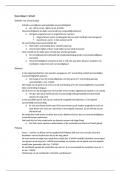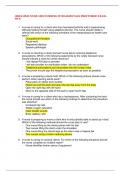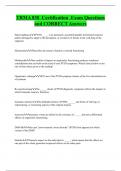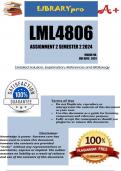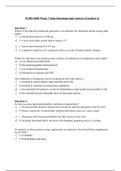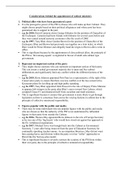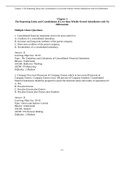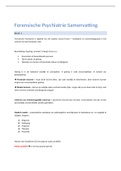Essay
Essay for Foundations Of South African Law (PVL1003W)
- Institution
- University Of Cape Town (UCT)
This document is an essay about the rule of law. It delves into topics which affects the rule of law. Such topics are 'judicial choice' (such as the discretion that judges have in deciding cases), 'democratic constitutionalism', 'liberal-conservative constitutionalism' and 'transformative constitut...
[Show more]




